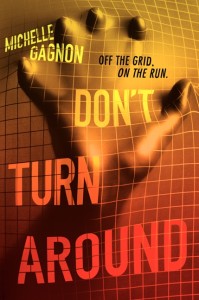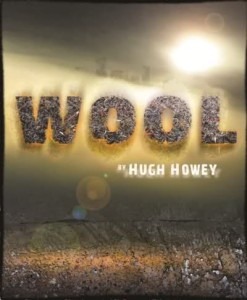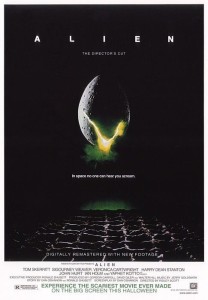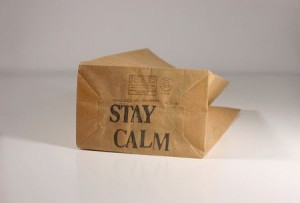Figment.com has just announced a contest to celebrate the release of my YA debut DON’T TURN AROUND. In keeping with the theme of the book, they’re asking for a story about teen rebels with a cause, in 1,200 words or less. The winner will receive a 13 inch MacBook Pro (a computer that features prominently in the storyline, since it’s sort of a “Girl with the Dragon Tattoo for teens”), and a signed copy of the book.
I’m really excited about this (especially since, for a refreshing change, this time I won’t be the one paying for the grand prize!) However, I wonder…do giveaways really lead to more copies sold?
For my second book, BONEYARD, I held a Kindle contest. Anyone who signed up for my newsletter got their name thrown into the hat (mind you, this was for the Kindle 1, which as a brand spanking new device retailed for $450).
That was, to date, my bestselling novel.
But I was hesitant about repeating that particular contest-after all, signing up for my newsletter didn’t necessarily translate to purchasing the book; and many might simply unsubscribe as soon as the contest ended. (For the record, I didn’t experience an unusually high dip in subscribers in the aftermath). Plus, it was a lot of money to spend without a quantifiable return.
So for my third thriller, THE GATEKEEPER, I decided to take it up a notch. I offered a MacBook (paid for out of my own advance) to anyone who could answer two easy questions about the book.
I received a decent number of entries; certainly not as many as with the previous contest, but a respectable amount. To enter, a reader needed to provide the names of two specific characters, in response to a fairly simple question for anyone who had read the book.
But some people literally sent a full roster of every character in every single one of my novels. One woman emailed me directly twenty times over the course of a day, listing two characters at a time (a few of whom weren’t even from any of my books), asking repeatedly, “These two names? What about these two?”
When I gently pointed out that randomly throwing names at me wasn’t really keeping in the spirit of the contest, she got huffy and fired off a nasty email about how spoiled authors were, and how this was the only way she could get a new computer. Plus, she wasn’t a big reader in general, and found it unfair that she be asked to read something in order to enter a giveaway.
*Sigh. The entire experience ended up leaving a bad taste in my mouth (not to mention a dent in my wallet). So for my fourth book, I skipped contests entirely.
I had no idea that Figment was going to be running this contest until it posted; I love the idea behind it, though. Especially since Figment serves as a virtual writing community. And I’m terribly flattered that they’re offering such an amazing, generous prize.
But will it translate into sales? Hard to say. I know the old 50% marketing adage (half of what you do will work, but chances are you’ll never know which half). But it’s a source of perpetual frustration for every author–where do you concentrate your marketing time and money, especially now that there’s such a huge array of options? Hemingway never had to deal with Twitter (although I suspect he would have been fantastic at it, with his knack for sparse prose).
So what do you think? Has a giveaway ever persuaded you to purchase a novel you never would have picked up otherwise?
Category Archives: Michelle Gagnon
What Killed the Thriller Writer: Your Attention Span
by Matt Richtel
Today TKZ is delighted to host Pulitzer Prize winning NY Times reporter and thriller author Matt Richtel. His post today ties in nicely with a discussion Clare began on Monday: read her post here if you missed it, and let’s continue the debate…
Body counts are rising, blood spilling in buckets. It’s a conspiracy pandemic. Thriller writers entering an epic age of mayhem.
Credit the muse? Maybe.
For sure blame the Internet.
It is responsible for a fascinating new trend among, in particular, mystery and thriller writers. We are writing more than ever. No longer just a book ever year. In the last year, it has become au courant for us to also publish short stories at least once a year, between book releases.
Lee Child, Lisa Gardner, Steve Berry, go down the list of the heavyweights. They’ve all getting into the short-story game, creating a thriller wellspring, or, if you prefer, a bloodbath. I enter the fray myself this month with “Floodgate,” a political thriller, my first short story.
But as with any good plot twist, there is well more here than meets the eye, a backstory, and some troubling questions, including, chiefly: is this a good idea? Or are we at risk of murdering something truly dear: our craft?
First, ladies and gentlemen of the jury, the facts:
It’s long been tradition for thriller writers to put out a book once a year to keep audiences attached to characters and authors and, bluntly, to their brands. This was not necessarily an easy schedule for writers, especially those who really invested in depth, but it was doable and simply understood as necessary.
I’ve had some big-name thriller-writer friends tell me that when they didn’t write a book one year – say, because of a divorce or contractual dispute – they’d see a material decline in their sales.
Then along came the Internet, with all its mixed blessings (see, duh: Amazon). More competition, less shelf space, less control for publishers on distribution (see: almost none). How did short stories become a response?
The publishers (and we writers, by extension), began to fear that we’d get lost in the white noise of competition. Make a reader wait a year for a new book? Heck, by then even loyal readers might’ve made for the nearest cat video. So part of this is an effort to keep our names in the LED lights.
There’s also a more direct marketing reason. The short stories are “e-pub,” electronic only. They are relatively cheap, 99 cents or so, so there’s little incentive for a reader not to at least give it a shot, particularly if written by a favorite author. At the back of the short story, there often is the first few chapters of the author’s next book, and a “click-to-buy” button.
If readers like the story, they pre-order the next book. Pre-orders are great because they build the so-called “first-week sales,” which, if those mount, can get the writer on the bestseller list. In short: the short story as loss leader.
Writers privately grumble: you mean I gotta write something else, for free, while I’m already on a breakneck cycle of write, edit, publicize, repeat? Oh, and did I mention blog, Facebook update, tweet, repeat?
How good can these stories be if we’re writing on a treadmill?
So it all sounds like marketing, and nothing more, right? Like: gag me with a spoon (and put police tape around my utensil-strangled body). Not so fast. There’s, potentially, a lot to like here.
First of all, short stories, when done well, can blow the mind. Swift movement, concision, detailed and fast character development, a flurry of clues. A short story can make every word count, the language itself pregnant with clues.
(One great short story making a lot of rounds is “Wool,” if you haven’t read it; I’m told it has been optioned by Ridley Scott).
The medium also is a chance to introduce or try on a new character, not your usual protagonist. In the case of Floodgate, my latest, I’d long been aching to write about Zach Coles, a bitter, hostile out-of-work journalist who once punched an editor for misplacing an adjective; he’s tall and awkward, moving like a drunken Ostrich but fighting like a Ninja.
One friend with a string of bestsellers urged me to weave into Floodgate my regular protagonist, create a bridge, if you will, between short story and my other books. And creating, in turn, for my regular readers, a bit of an Easter Egg.
In the end, it was extra work I hadn’t contracted for. More bodies piling up. Another conspiracy I hadn’t expected to execute this year. An experience driven in the first instance by marketing, not the muse.
But she did take over, the muse, wrestling away what might’ve been a very cynical process. I gave a damn (unlike Zach Coles, whose venom makes it very hard to save the world). No wonder. We, thriller writers, don’t kill because we have to. It’s because we need to.
Meantime, Harper Collins is doing its part, meeting me more than halfway, putting out some swanky videos, radio spots (Don Imus!) and banner ads they hope will make it viral (fat chance but not less-than-zero). So blame the Internet for mass murder. But hopefully we can rely on the muse to spare us and make the killings artful.
Matt Richtel is a Pulitzer Prize winning New York Times reporter and bestselling thriller writer. His latest, Floodgate, a political conspiracy that puts Watergate to shame, comes out this month. He can be reached at mattrichtel at gmail dot com.
Tag Line Haiku
Ah, the tagline…how I love it. For those of you who don’t know, a tagline is that little nugget on a book cover (or movie poster) that serves as a branding slogan, that memorable phrase that persuades you to buy the book (or purchase a ticket to the movie). The following are a few of the most famous cinematic taglines:
- “In space, no one can hear you scream.” -Alien
- “Just when you thought it was safe to go back in the water.” Jaws 2
- “There can be only be one. -Highlander
- “One ring to rule them all.” -The Lord of the Rings
- “The truth is out there.” – The X-Files
One thing most people don’t know is that authors rarely get to choose their own taglines. So far, my books have been graced with the taglines, “Anyone can end up in the…BONEYARD,” and “We are our greatest enemy.” (THE GATEKEEPER). My latest release, DON’T TURN AROUND, actually had the tagline changed once some of the top buyers weighed in on it; we ended up with, “Off the grid/On the run” (which I love).
It struck me, as I recently perused the vast array of titles at my favorite independent bookstore, that there’s a game in here somewhere. A way, if you will, to combine two of my favorite things: taglines and haikus. And you’re all invited to participate.
Just so we all understand the rules: a haiku is, according to the standard definition, “A Japanese poem of seventeen syllables, in three lines of five, seven, and five.”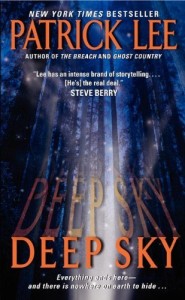
For the sake of simplicity, feel free to combine book tag lines with film tag lines, if they seem to belong together. But make sure to attribute the tags to the appropriate sources.
I’ll be composing my haiku with a nod to some of my favorite titles (I excerpted the first part of the tagline when necessary; feel free to do the same).
Have fun, I can’t wait to see what you all come up with!
Past evil still lives.
Beauty is only sin deep.
Everything ends here.
(Respectively, Heather Graham, THE UNHOLY; Ken Bruen and Jason Starr, SLIDE; and Patrick Lee, DEEP SKY.)
On a side note, if you’ll permit a digression: my publisher is currently giving away galleys of my upcoming release, DON’T TURN AROUND. There are a few different ways to enter, and each only takes a few minutes.
On Twitter, just retweet this:
@EpicReads Off the grid. On the run. DON’T TURN AROUND by @michelle_gagnon http://vsb.li/zJ3A8c RT for a chance to win!
On Facebook, Like this page.
And/or on Goodreads, Click here to enter.
Feel free to forward to anyone who might want a free book!
Setting the Stage: A Writing Exercise
For a change of pace today, I thought we could tackle a writing exercise. One of the things that’s struck me during our critiques lately is that I’m not alone in sometimes neglecting to include enough descriptive prose to set the stage for my stories. In fact it’s such a weakness of mine, I rarely add much detail in first drafts. I get the plot and dialogue in place, then go back during the editing process to flesh everything out. In all honesty, scenery description is my least favorite part of the craft of writing.
For one, remembering to include all five senses is always a struggle; I have a terrible sense of smell, and have to remind myself that my characters might not. Also, describing anything from a basic room to a crowd scene is rife with pitfalls; there isn’t a writer alive who hasn’t caught themselves typing out a trite cliche about the shape of the moon, or something similar.
So when my book is set somewhere specific, I rely heavily on photographs. The corkboard behind my desk is always layered with photos representing nearly every scene in the manuscript. I find that looking at them triggers sense memories, especially if I’m writing about somewhere I’ve been. I remember how streets in Paris are always wet in the morning, having been freshly washed by maintenance crews just before dawn. Or how the light in Central Park shifts dramatically season by season, or how the air in South America just tastes different (maybe my sense of taste is stronger, to compensate for that lack of smell).
Below I’ve pasted three photos. Pick any one and describe it in a paragraph, or use it as the jumping off point for a scene. Take care to avoid overused metaphors: “The sea was dark as slate,” for example, or, “The sky was as blue as a robin’s egg.”
Bonne chance!
First Page Critique: DON’T SAY A WORD
Today’s first page critique submission is entitled, DON’T SAY A WORD. As Joe said yesterday, we’re accepting 350 words max of works in progress. We aim to provide an overall assessment of the work based on what we’ve learned through our own publishing experiences. We hope it will be helpful not just to the author of each work, but to all of our readers.
DON’T SAY A WORD
“All right, Marconni, see Valentino. There. Mickey’s the one in the red silk,” I said, pointing to the three gang members of the Valentino family gathered in the New York City Italian restaurant.
Assistant FBI Director John Marconni drew in a deep breath as we watched the surveillance feed. The lights inside glowed dim, and the closed sign appeared in the window with the red checkered curtains two hours ago. The last public patrons were long gone.
“They won’t be there long. Valentino doesn’t socialize well,” I said, running a hand over my neck, massaging the tight muscles.
Marconni nodded. “He’s not slipping out this time, Aiello.”
“You won’t take him alive,” I said, shaking my head, “he’ll never testify.”
I grimaced and felt adrenaline pumping into my system. At least at this hour, whatever went down, no more civilians would die at Valentino’s hands.
Marconni raised his hand and spoke into the mike. “Hold, Team one. Eyes open, Team two!”
I saw it.
Movement on the street caused Marconni’s hesitation.
A figure appeared out of the shadows and walked toward the restaurant. A woman, dressed to the nines, clingy red scrap-of-a-dress, four inch heels, body to die for. Long brown tresses cascaded to her waist. She fished in her purse for something.
“We got her, boss. She’s going in. Team two, hold position. We got a renegade on approach.”
My heart slammed into my chest.
She inserted keys into the lock and for a fraction of a second, as she opened the door to the Valentino hideout, the dim lights inside illuminated her face.
“You seeing this, Tony?” Marconni asked.
“I see it,” I growled, the recognition flooding into me, twisting my gut.
I watched as the woman walked over to Mickey Valentino. He pulled her into his arms and they embraced. Kissed. His hands roamed all over her, and I watched with revulsion as she responded to him.
“We gotta go in, Tony. I’m sorry,” Marconni whispered where only I could hear. Then he spoke into his mike, “Go, Team Two. Take ‘em alive. All of them.”
As an opening page, I really enjoyed this submission. The author does a good job of dropping the reader into the middle of a scene without an inordinate amount of exposition. The stage is set nicely for whatever is about to transpire.
I do wish that I was given a better sense of where the narrator is vis a vis the action; is he in a van? I assumed so, based on the surveillance feed line, but a single sentence of clarification would be helpful. What does it smell like inside the van? Maybe it reeks of take out, since they’ve been there for awhile. Perhaps our narrator is hungry, since he’s been stuck there for hours. Also a few lines about the restaurant, and/or the surrounding area. Is there anyone else outside? Is it summer, spring, fall? This is another opportunity to provide a few key details that really set the stage. I understand that it’s late; can he hear garbage trucks collecting trash from dumpsters? A few cabs sliding past on the nearly empty streets? Are homeless people dozing in nearby doorways?
And what does Marconni look like? Is he in a sharp or rumpled suit? Old, or young? Again, just adding in a sentence here or there to build a sense of what the characters look like and what they’re feeling would be helpful.
There’s a nice noir feel to this piece, and I think it would be great to expand on it a bit. But some of the phrasing is a bit trite: grimacing, heart slamming into my chest, adrenaline pumping into my system. These are all nice and descriptive, but a bit overused. I would aim for more subtlety, and coming up with a way to illustrate these sensations that is more original.
All in all, I would definitely keep reading. I’m curious to find out what the narrator’s relationship is to this woman, and to discover what’s about to happen in the restaurant. Well done.
Oh, Sweet Irony
I suppose it was inevitable once Amazon started their own publishing wing. A company that was founded on the premise that you need never set foot in a bookstore again (which expanded to never setting foot in any store, for many) has started opening…wait for it…stores. They’re sussing out their first bricks & mortar location in Seattle, where their corporate headquarters is located.
Mind you, this won’t really be a bookstore; apparently the focus will be on pricier items such as tablet computers (and, I’m guessing, their rapidly expanding Kindle line).
It’s an astonishing reversal for the company that insures there’s a UPS driver coming down my street every day, sometimes even multiple times a day.
Mind you, I don’t intend to launch a bout of Amazon bashing here–I’m as guilty as my neighbors when it comes to online ordering. I signed up to have kitty litter, toilet paper, and coconut water shipped to my door every month once I realized that it was cheaper than buying those items in the supermarket. I did the vast majority of my Christmas shopping online this year, a significant chunk of it while getting my hair cut, which is a far cry from past Decembers when I drove from store to store trying to cross everyone off my list. And most importantly for me as a writer, thanks to Amazon I consistently sell backlist copies of books that vanished from store shelves years ago.
So I’m definitely no Amazon hater. And once Barnes & Noble, Books a Million, and other stores issued statements declaring that they would (understandably) refuse to stock titles from Amazon’s new publishing imprint, launching their own physical retail wing made sense.
Still, it is ironic, isn’t it? When companies like Amazon first arrived on the scene in the heady days of the dotcom boom, they loftily promised that within a decade, no one would have to leave their house for anything (fantastic news for agoraphobes; maybe not so great for the rest of us). Websites would sell everything from beds to orange juice to mouthwash and deliver it to your front door, all for less than you’d pay in a store since the overhead of rent, utilities, and payroll would be largely removed from the equation.
And lo and behold, here we are a little more than a decade later, and they were largely right. Except that there no longer are a slew of websites providing the online equivalent of roaming from store to store: instead it’s a one-stop shopping experience. Amazon has become a behemoth, the place where you can buy pretty much anything you desire and have it delivered to your front door, usually within two days. And now, after driving so many mom and pop stores out of existence, they’re backtracking and opening a place where you can get the personal touch; one-on-one interaction with a sales staff.
I have very mixed feelings about all of this. For one thing, the tech boom has spawned a modern day equivalent of the types of monopolies that held the nation at their mercy around the turn of the last century, with Amazon and Microsoft replacing Standard Oil and U.S. Steel. In some regards, aren’t Jeff Bezos and Mark Zuckerberg contemporary robber barons?
And now that so many stores that I loved have shuttered, it seems unseemly that the company that helped drive them out of existence is stepping in and taking over the shelf space they helped destroy. (For the record, I buy all of my physical books in bookstores, and I still buy as many as I did before I got my Kindle. I’ve actually found that having an eReader has increased my weekly book consumption).
But I’m also guilty of getting those deliveries every month, of using them to make my holiday shopping easier; and I’ve received the gains in sales that wouldn’t have been possible if my books were only available in print. And I have many friends whose contracts weren’t renewed, but managed to continue publishing their books independently thanks to Amazon, an outlet that wouldn’t have been available to them otherwise.
So I’m curious; what do you all think about Amazon’s latest move?
Oh, Sweet Irony
I suppose it was inevitable once Amazon started their own publishing wing. A company that was founded on the premise that you need never set foot in a bookstore again (which expanded to never setting foot in any store, for many) has started opening…wait for it…stores. They’re sussing out their first bricks & mortar location in Seattle, where their corporate headquarters is located.
Mind you, this won’t really be a bookstore; apparently the focus will be on pricier items such as tablet computers (and, I’m guessing, their rapidly expanding Kindle line).
It’s an astonishing reversal for the company that insures there’s a UPS driver coming down my street every day, sometimes even multiple times a day.
Mind you, I don’t intend to launch a bout of Amazon bashing here–I’m as guilty as my neighbors when it comes to online ordering. I signed up to have kitty litter, toilet paper, and coconut water shipped to my door every month once I realized that it was cheaper than buying those items in the supermarket. I did the vast majority of my Christmas shopping online this year, a significant chunk of it while getting my hair cut, which is a far cry from past Decembers when I drove from store to store trying to cross everyone off my list. And most importantly for me as a writer, thanks to Amazon I consistently sell backlist copies of books that vanished from store shelves years ago.
So I’m definitely no Amazon hater. And once Barnes & Noble, Books a Million, and other stores issued statements declaring that they would (understandably) refuse to stock titles from Amazon’s new publishing imprint, launching their own physical retail wing made sense.
Still, it is ironic, isn’t it? When companies like Amazon first arrived on the scene in the heady days of the dotcom boom, they loftily promised that within a decade, no one would have to leave their house for anything (fantastic news for agoraphobes; maybe not so great for the rest of us). Websites would sell everything from beds to orange juice to mouthwash and deliver it to your front door, all for less than you’d pay in a store since the overhead of rent, utilities, and payroll would be largely removed from the equation.
And lo and behold, here we are a little more than a decade later, and they were largely right. Except that there no longer are a slew of websites providing the online equivalent of roaming from store to store: instead it’s a one-stop shopping experience. Amazon has become a behemoth, the place where you can buy pretty much anything you desire and have it delivered to your front door, usually within two days. And now, after driving so many mom and pop stores out of existence, they’re backtracking and opening a place where you can get the personal touch; one-on-one interaction with a sales staff.
I have very mixed feelings about all of this. For one thing, the tech boom has spawned a modern day equivalent of the types of monopolies that held the nation at their mercy around the turn of the last century, with Amazon and Microsoft replacing Standard Oil and U.S. Steel. In some regards, aren’t Jeff Bezos and Mark Zuckerberg contemporary robber barons?
And now that so many stores that I loved have shuttered, it seems unseemly that the company that helped drive them out of existence is stepping in and taking over the shelf space they helped destroy. (For the record, I buy all of my physical books in bookstores, and I still buy as many as I did before I got my Kindle. I’ve actually found that having an eReader has increased my weekly book consumption).
But I’m also guilty of getting those deliveries every month, of using them to make my holiday shopping easier; and I’ve received the gains in sales that wouldn’t have been possible if my books were only available in print. And I have many friends whose contracts weren’t renewed, but managed to continue publishing their books independently thanks to Amazon, an outlet that wouldn’t have been available to them otherwise.
So I’m curious; what do you all think about Amazon’s latest move?
Writing Exercise: Six Word Memoir
Hemingway was once famously challenged to write a short story in six words or less, and he came up with, “For sale: baby shoes, never worn.”
Kind of the perfect story- so much there, yet so much left unsaid. It leaves you wondering and wanting more.
Smith Magazine launched a six word memoir contest awhile back, inviting people to submit the story of their life with extreme brevity. It was so successful that they produced a book with submissions from a wide variety of authors both famous and obscure, including Amy Sedaris (Mushrooms. Clowns. Wands. Five. Wig. Thatched), Sebastian Junger (I asked. They answered. I wrote), and Po Bronson (Stole wife. Lost friends. Now happy).
Today, I challenge you to do the same. Here are some of my favorites, culled from their ongoing blog:
- “More fun since moral compass broke.”
- “Write about sex, learn about love.”
- “I thought that I’d be taller.”
- “Committed voluntarily, until tried to leave.”
- “Asked to quiet down. Spoke louder.”
And here’s mine, always a work in progress:
“Loved and lost and loved again.”
So what’s your life been like, in a sextuplet?
Writing Exercise: Six Word Memoir
Hemingway was once famously challenged to write a short story in six words or less, and he came up with, “For sale: baby shoes, never worn.”
Kind of the perfect story- so much there, yet so much left unsaid. It leaves you wondering and wanting more.
Smith Magazine launched a six word memoir contest awhile back, inviting people to submit the story of their life with extreme brevity. It was so successful that they produced a book with submissions from a wide variety of authors both famous and obscure, including Amy Sedaris (Mushrooms. Clowns. Wands. Five. Wig. Thatched), Sebastian Junger (I asked. They answered. I wrote), and Po Bronson (Stole wife. Lost friends. Now happy).
Today, I challenge you to do the same. Here are some of my favorites, culled from their ongoing blog:
- “More fun since moral compass broke.”
- “Write about sex, learn about love.”
- “I thought that I’d be taller.”
- “Committed voluntarily, until tried to leave.”
- “Asked to quiet down. Spoke louder.”
And here’s mine, always a work in progress:
“Loved and lost and loved again.”
So what’s your life been like, in a sextuplet?
Handling the Crush
I’ll be keeping this short and sweet today, because as you can probably tell by the title of my post, I’m feeling overwhelmed. In fact, I had to drag myself away from the paper bag I was busy hyperventilating in to compose this post.
I finished a book yesterday, only to find out that the deadline for the next one is just a few months away. And I have yet to write the first page of that one (argh!)
Somewhere in there are two week-long school vacations and a slew of long weekends, plus the editing of the book I just turned in (which I suspect-no, know-will require a major overhaul), plus the line edits of a third book.
I realize that this might come across as ungrateful. Believe me when I say that I am incredibly thankful to be under contract at the moment, when so many other people are having a tough time. A year ago, I was worried about selling one more book, and I ended up with two contracts for four. So this is a classic example of be careful what you wish for. Because now, I’m utterly swamped.
On top of everything else, chances are that I’ll be selling my house, finding a new place to live, and moving there in the same four month time period. With a five year-old and a cantankerous cat (and of course, said cat makes finding a pet-friendly place in San Francisco even more of a challenge).
So I’m actively soliciting advice on how to manage all this without losing my proverbial marbles.
My question to you all is…how do you handle it when life comes at you all at once?

